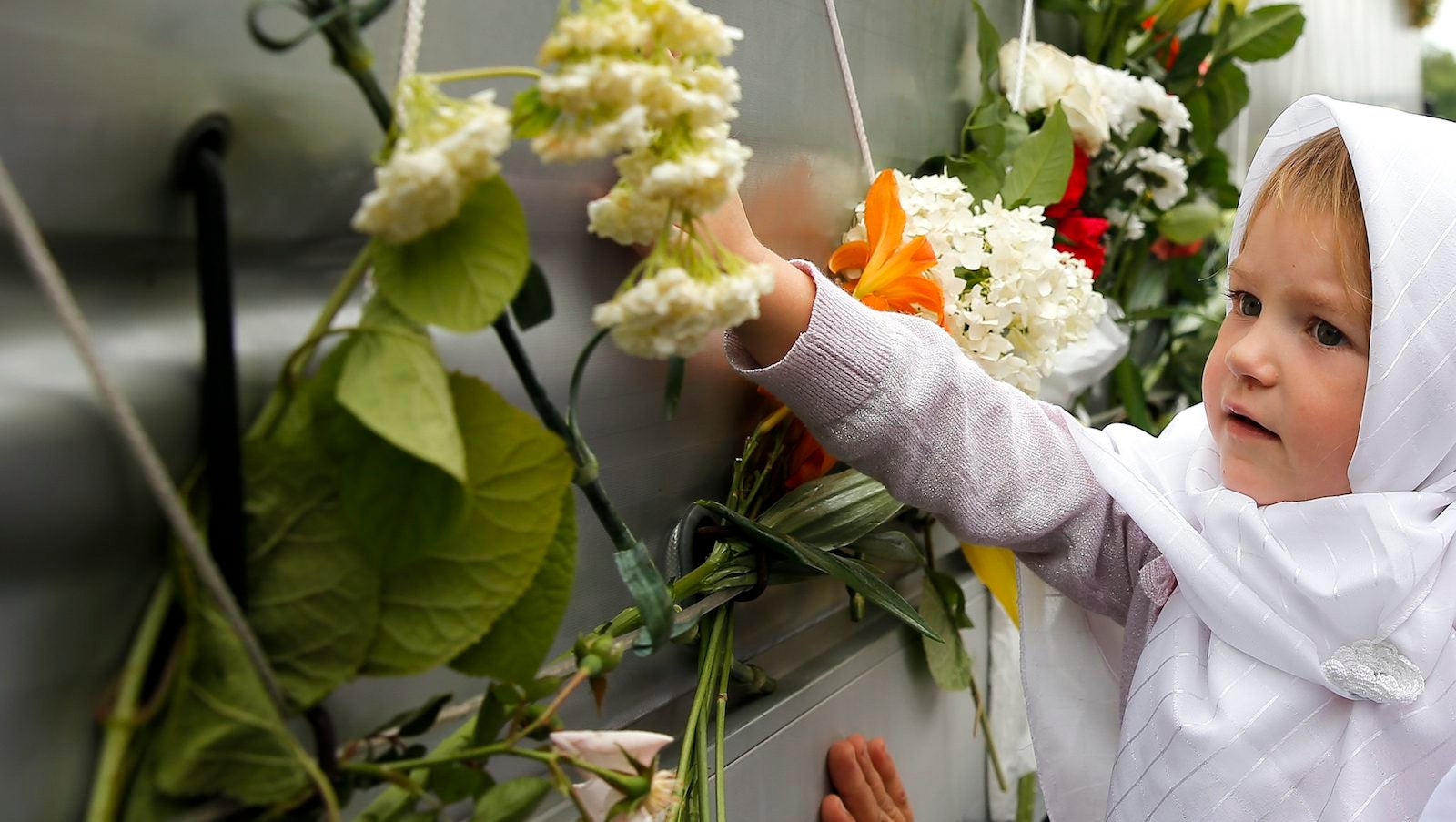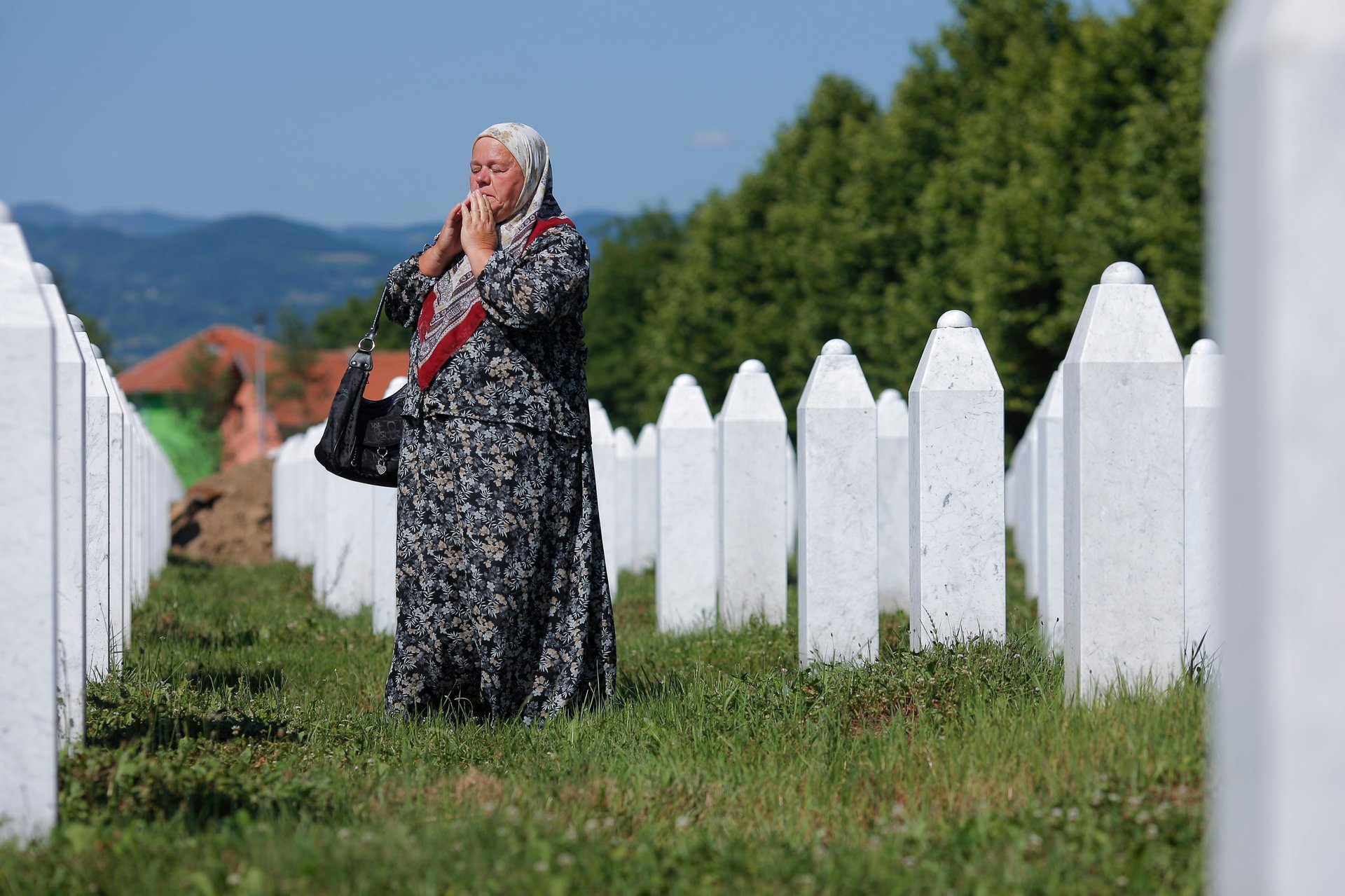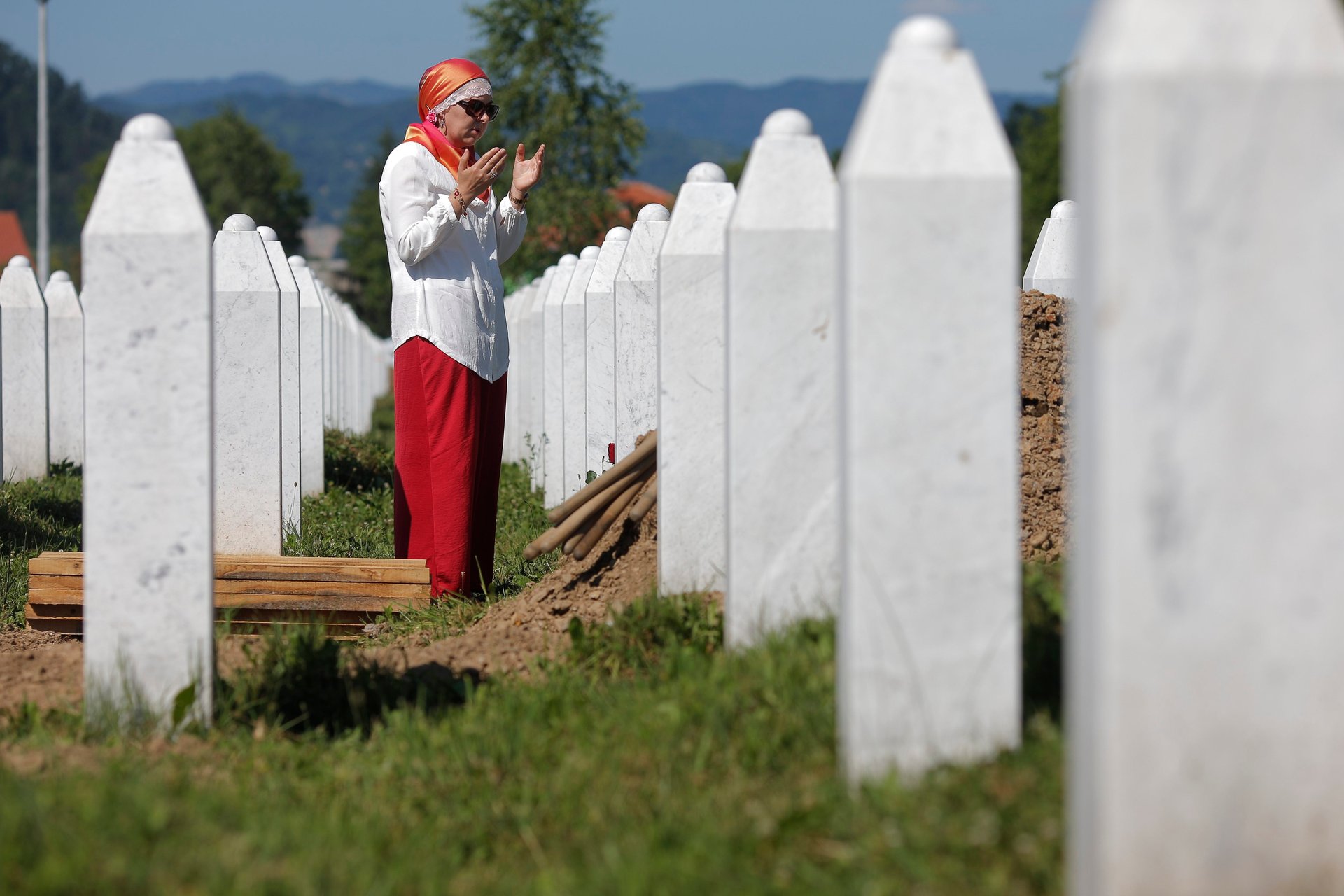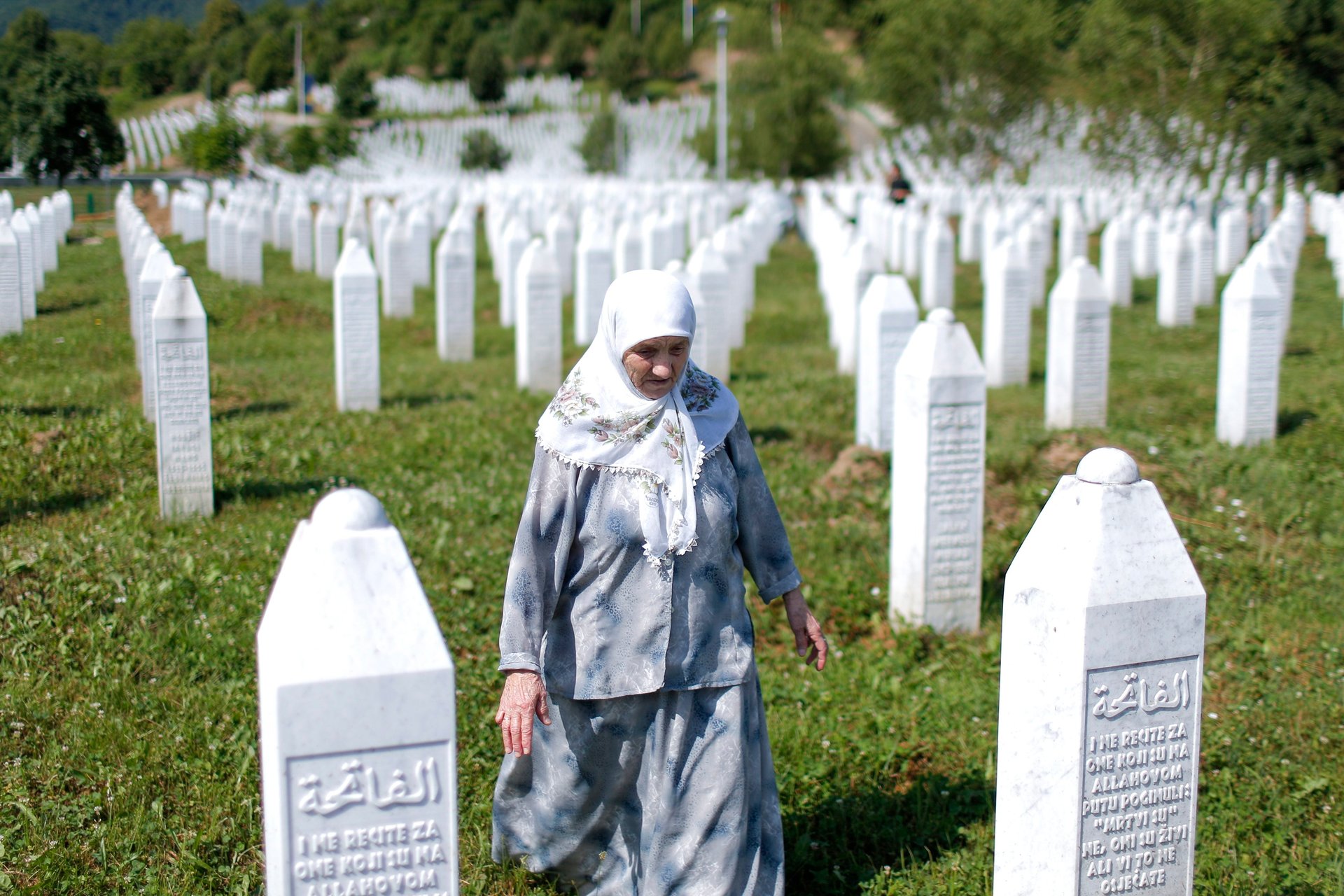What Srebrenica means to a Muslim in America
This Saturday, July 11, is the 20th anniversary of the Srebrenica massacre, when Serbian nationalists overran a United Nations-declared “safe area” around the town of Srebrenica and murdered some 8,000 Muslim boys and men.


This Saturday, July 11, is the 20th anniversary of the Srebrenica massacre, when Serbian nationalists overran a United Nations-declared “safe area” around the town of Srebrenica and murdered some 8,000 Muslim boys and men.
It was the vilest atrocity of an already bloody civil war. From 1992 to 1995, Bosnian Muslims found themselves targets of an extermination campaign; “ethnic cleansing,” outsiders called it, even though the Bosnian Muslims were superficially indistinguishable from the Serbs who attacked them.
The difference was religion. In order that a “Greater Serbia” might be born from the breakup of Yugoslavia, the Serbs argued, Bosnia’s Muslims had to go. Not 50 years after Auschwitz was liberated, after everyone said “never again,” tens of thousands of Bosnian Muslim women were raped. According to some estimates, over one hundred thousand Bosnian Muslims were killed. Many more became refugees. There were concentration camps, even rape camps. The war lasted over three years before finally the West intervened.
You may not know this happened. But I sure as hell do. Many Muslims do, especially Western Muslims, even American Muslims. We will never forget. We can’t. Because the Bosnians were white. European. If they could be killed for being allegedly (and inaccurately) foreign—as if that would be grounds for murder anyhow—what hope was there for us, most of whom are more recently arrived, and frequently brown or black?

My ancestors left Iraq sometime in the 13th century. By the time they arrived in the Punjab, there were already Muslims in Eastern Europe, some related to the Muslim dynasts who ruled over India. In fact there have been European Muslims in existence longer than there’s been a Germany or an Italy, longer than there have been Lutherans or Anglicans.
And today, 20 years after Islamophobia killed tens of thousands of Europeans, the world has still not had a conversation about how to end anti-Muslim bigotry. We’re debating whether it even exists. Even those who imperiously concede Islamophobia exists often insist it is harmless, victimless, far from a crime.
What happened in Bosnia was a war crime.
Muslims around the world watched the West, our West, slap sanctions on the Bosnians, so they could not defend themselves from the former Yugoslavia’s massive military, even as evidence of the atrocities piled up alongside the bodies. Refusing to help them, then refusing to let them help themselves, Muslims died, and the world did nothing. Including the Muslim world.
Worse, though, is the fact that this was not exceptional.
Over the last two hundred years, one European Muslim people after another has been targeted for elimination. Some, like the Ubykh of the Caucasus, successfully. Others, like Circassians, were mostly driven out. Still more, including Bosnians, Chechens, Ingush, Daghestani, Crimean and Volga Tatars, have been subjected to repeated decimation.
It’s not a surprise that some Muslims take up arms in the absence of state sanction or intervention, or that such conflicts are front-and-center in radical narratives, extremist media, or jihadist preaching. Defend your kith and kin, they say, when no one else can. If you don’t, they charge, you’re no worse than the murderers.
The crimes shock, and the apathy stuns. Though I was only a teenager, I too felt a need to do something.
But what?

The only options seemed to be fighting—we know how that turns out—or, well, nothing. Years later, it occurred to me: Why couldn’t the massive American Muslim market, and the global Muslim market, be leveraged to do some good?
Tourism. I’d bring American and Canadian Muslims to Bosnia. They’d learn what happened there. They’d fill hotels, and create jobs. They’d post pictures on Facebook, and encourage others to come. The wealthier among them might invest in the region. They’d build sustainable bridges of connection, a modern spin on ancient Muslim ideal—the ideal of ummah—so often used and abused by radicals. We’d start in Sarajevo, home base. From there we’d travel south to Mostar, the famed old city, and then east for Srebrenica.
And eventually, I did all this with a group. It went according to schedule, until the schedule reached Srebrenica.
The best laid plans of mice and Muslims, you could say.
The day my tour group arrived at Srebrenica’s genocide memorial, I walked around in the detached and paternal way a good tour guide should, until halfway through something in me snapped.
Across the road from us were some eight thousand white pillars sticking out of the ground, each of them marking a life taken, an innocent we failed to protect. A life I did nothing for. I forgot and abandoned my group, burning with rage, wondering what the hell difference it made to bring tourists well after the massacres had concluded. Feeling utterly spent, and beyond foolish, I sought refuge in the mosque beside the graveyard. That’s where my group found me, never asking where I’d gone. We recited the fatiha, what Muslims do for those who’ve passed on, and reboarded our bus.
We spent the three hours back barely speaking, stunned by what we had seen. But when we returned, it was evening, and Sarajevo appeared to be celebrating a holiday we’d not heard of.
Our hotel was at the intersection of the Austro-Hungarian old city and the Ottoman older city, Baščaršija. Though it was dark, the small streets—in truth, really, it’s one major street and its arteries—were overflowing with people, joyously, wildly, decisively alive, some headed to bars and some to mosques, some dressed for worship and others apparently for South Beach, or one after the other, but they crisscrossed and mingled, came together and split apart again, so vibrant that I could not help but be caught up in it, and then I wondered: Who really lost this war?
We know what happened. We know the Bosnians were the victims.
But even as I mourned them, I cheered them. For holding on, for fighting when they had neither weapons nor support, when by every measure they should have been overrun and eliminated. All this time I’d presumed Bosnia needed me. But it was the other way around.

A few days later, I was meeting a young Bosnian activist for coffee in the courtyard of an old madrasa. He showed up on time. I showed up on time, too. I found this amusing, because “normally Muslims don’t”—but he was Muslim, so I rebooted—“you’re punctual, like a white person.”
“I am a white person,” he said, unoffended.
Separated by color, united by faith. We were continents apart, and yet we spent the evening as if we’d known each other for centuries. This place was Western, like me, and Muslim, like me, and it had been, for centuries, and in bringing Americans here, I wasn’t just offering solidarity, we were receiving sustenance. Hope. Home, really.
But not just our tour group. Bosnia’s genocide features prominently in Samuel Huntington’s The Clash of Civilizations, though Bosnians represent in themselves its antithesis. A democracy of Orthodox Christians, Catholic Christians, and Muslims. It’s quite possibly the most diverse country in Europe. And—take note, bigots and blowhards, extremists and terrorists—the Muslims of Bosnia want to keep it that way.
Even after what happened.
They’d been asked, with an army to their heads, “Are you Muslim or are you Western?”
And they said, very simply, yes.
On pain of death and in celebration of life, then and now, in Communist courtyards and Ottoman bazaars, shiny towers and farmhouses, sung from the minarets and chanted under ornamented domes, a thousand times yes.